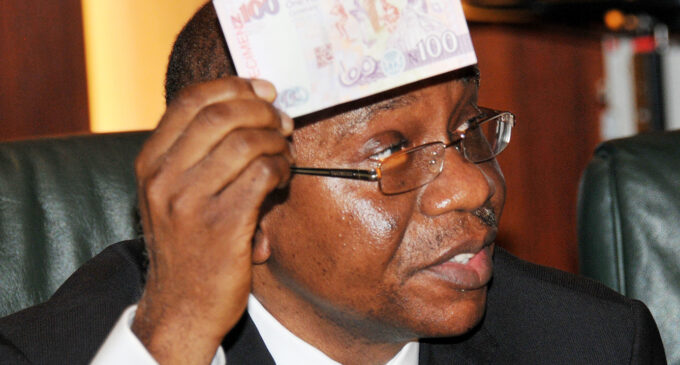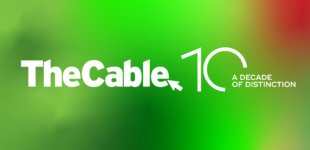Nigeria’s monetary policy dilemma

Monetary policy remains a dilemma here between the needs for low interest rates stimulatory to the economy and high interest rates to attract foreign portfolio investments. The Central Bank clearly lacks the policy-making masterstroke that takes care of the two key desirable objectives. All the bank has been doing even now is moving a little to the right and a little to the left in response to short-term changes in monetary aggregates.
In 2012, the bank’s decision to jack up interest rates was based on two major considerations – the need to discourage excessive borrowing by government, which it said was being subsidized by reason of low interest rates. The other was the need to attract foreign portfolio inflow, which remains critical to the stability of exchange rate here.
The need for a low interest rate regime stimulatory to domestic output and employment creation was sacrificed in the policy that jerked up monetary policy rate to 12%. Today, we can see clearly that the Central Bank was wrong in expecting that high interest rates would discourage government excessive borrowing. What the policy has succeeded in doing is to run government accounts into distress.
Government was not borrowing excessively because interest rates were low and therefore it could not reduce borrowing either when interest rates went up. So, the policy worked to complicate government finances, raised debt servicing obligations to one-third of total spending and created the need to pile up even more debts.
The second effect of the high interest rates regime is the attraction of foreign portfolio inflow, which helped the Central Bank in maintaining relative exchange rate stability until recently. It is arguable however whether the portfolio inflow happened because of the increase in domestic interest rates or because of the low interest rates in the United States and other advanced financialmarkets – which induced the flow of investment capital seeking higher returns in emerging markets. Despite the high interest rates, portfolio flow reversal has been a constant threat any time the US considered ending its monetary policy easing.
This is an indication that foreign portfolio inflow could still have happened without the increased interest rate policy. Interest rates in Nigeria were already quite high by global standard before the Central Bank pushed monetary policy rate from 9% to 12%. Recent events have also confirmed that capital flow is more of a function of safety considerations that interest rate inducement.
The third effect of the high interest rates regime here is clearly visible on company accounts. Companies operating with balance sheet debts are running into losses or sharp drops in profit, as finance charges are claiming significantly increasing proportions of sales revenue. Many companies have since stopped working for shareholders and are now working for lenders. The crumbling values in the stock market are a reflection of inability of companies to grow wealth for shareholders. Even banks themselves that administer the bitter pill of high interest rates are equally suffering declining profit margins induced by rising cost of funds.
Considering the three key areas of policy effects, it is quite obvious that the high interest rate regime has not helped the economy much. Yet, the merit of monetary policy lies in its consistency, which defines the medium-term objectives of policymakers. The back and forth swings only show the Central Bank as doing something while it is actually leading the economy to no defined direction. The question is what do we really want to achieve with monetary policy. And how far can we get other macroeconomic policies to be supportive of monetary policy objectives?
If what we want to accomplish is to cut the cost of borrowing to the government, it will be a policy roundabout turn – returning to the situation the Central Bank said was subsidizing government borrowing. In that case it should accept its decision to jerk up interest rates in the first place as a policy error. If its objective now is to give businesses a stimulatory breathing space, a monetary policy rate as high as 11% will not do. Interest rates will need to go down considerably and the state of infrastructures will need to improve to empower job creating growth in the economy.
The Central Bank cannot reasonably push the infrastructure problem to the rear and expect banks to increase lending to the real sector anyhow. The bank cannot reasonably ignore the problem of low consumer capacity in the economy and the consequent inability of companies to grow sales revenue and insist on increased bank lending in an environment of increased credit risk.
It is wrong to expect that the reduction in the monetary policy rate is a sufficient inducement for business and industry to start borrowing to produce in the absence of a consumer spending space. Consumers should be empowered to spend if businesses have to expand and create new jobs.
The Central Bank needs to define a medium-term direction for monetary policy to enable economic operators take decisions that can bring about fundamental changes in the production and consumption functions of the economy. Many years of high interest rate policy have shifted economic activity to the financial markets fringes of operations to the neglect of the real economy. We need also a consistent regime of low and declining interest rate policy to shift the economy from merely trading in financial instruments to employment generating activities in the real sector.
It will be a false expectation that this critically needed shift in the functioning of this economy would be achieved with 200 basis points reduction in the benchmark interest rate. To create the impression that banks will have to be compelled to lend to the real sector raises the question mark as to whether they are not the same banks that hawked credit facilities door to door in the post consolidated operations. Is the fault in the banks or in the environment?
If it is foreign portfolio investments that we want to attract, interest rates will need to be kept consistently high and the free flow of capital has to be maintained to achieve the desired results. That will require a considerable devaluation of the naira and a shift to increased dependence on local input in the industrial sector in order to deal with the fallout of exchange rate-induced domestic inflation.
The reduction in the monetary policy rate isn’t significant enough to help government finances much. In the light of the drop in government revenue, more debts are bound to pile up. The net effect of the reduction in the cost of borrowing on government’s debt burden will be more than countered by the rise in new borrowing. Government cannot stop excessive borrowing either because it is running a bloated expenditure structure that its revenue cannot support.
Until government begins to take decisive steps to cut down the cost of governance, it cannot head off the obvious fiscal crisis that is bound to worsen. As far as I can see, monetary policy isn’t doing any more than helping us to dress up the day to day disorder in the flow of money. It is neither low enough to cause a fundamental change in the production and consumption functions nor do we have appropriate macroeconomic structures for high interest rates to attract and retain huge portfolio investments. As long as interest rates continue to move a little to the right and a little to the left, the fundamental changes desired in the functioning of the economy will continue to be delayed.













This is a great and enlightening analysis of the problems with the current Nigerian monetary policy regime. I really hope that there is a change in the guard with someone with the policy chops of Sanusi, e.g. to help steer things in the right direction.